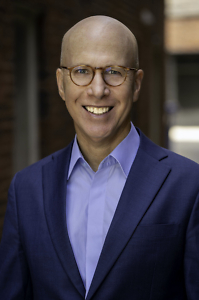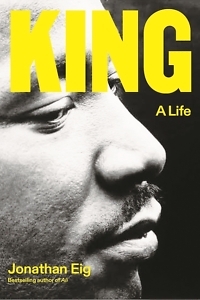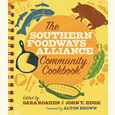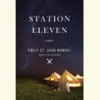The Myth and the Man
Jonathan Eig’s King: A Life captures the civil rights leader in his full humanity
FROM THE CHAPTER 16 ARCHIVE: This interview originally appeared on May 15, 2023. The post has been updated with new publication and event information.
***
It might seem that Martin Luther King Jr. is more a myth than a man. Thanks to his soaring oratory and moral courage, he has emerged in popular memory as a kind of Founding Father, compelling a nation to better realize its democratic ideals. Yet author Jonathan Eig urges us to “embrace the complicated King, the flawed King, the human King, the radical King.” In King: A Life, Eig paints a vivid portrait of the civil rights leader in all his complexities. Marked by deep research and sharp writing, it is the definitive King biography of this generation.

Jonathan Eig worked as a reporter for various newspapers, including the Wall Street Journal, before becoming a bestselling author. His celebrated narrative histories include a biography of Lou Gehrig, the tale of the creation of the birth control pill, the story of Jackie Robinson’s first season with the Brooklyn Dodgers, and the plot to take down Al Capone. His 2017 biography of Muhammad Ali, entitled Ali: A Life, won the PEN/ESPN Award for Literary Sports Writing.
Eig answered questions via email from Chapter 16:
Chapter 16: Many of the early books of the civil rights movement were biographies of Martin Luther King Jr. More recently, historians have questioned and complicated the place of King in the movement. How can a new biography shed light on King’s role in the struggle for Black freedom?
Jonathan Eig: I’m a big fan of questions and complications! Our understanding of King (and history in general) ought to shift with time. But I was stunned to discover that decades had gone by without a big, fat King biography. Even though many excellent books on King and the civil rights movement had been published, biography serves a special purpose — it allows readers a more intimate view of history. I wanted to remind readers that King was a man before he became a monument and a national holiday, that he struggled, that he possessed flaws, and that he possessed even more courage than we appreciate.
Ella Baker once said “the movement made Martin rather than Martin making the movement.” I think both are true. King, more than anyone, gave the Black freedom struggle its voice. It’s a voice we still need to hear.
Chapter 16: As a prophet for genuine democracy, King has earned his status as a moral hero. Yet he also shied from personal conflict, sank into fits of depression, and engaged in reckless marital affairs. How do we reconcile these two sides of King? What do biographers owe their subjects?
Eig: I think biographers owe their subjects honesty. I think biographers ought to respect their subjects and their readers enough to allow for nuance, for flaws, for humanity. If you want your heroes to be immortal, watch a Marvel movie. King, to me, emerged as a much greater person when I saw how he struggled to escape his father’s grasp, how he hated to say no to pretty much anyone, how he succumbed to and experienced deep guilt over certain temptations. I find the man more inspirational than the myth.
Chapter 16: Biographers live with their subjects for years. What was it like to live with Martin Luther King? As you researched and wrote King: A Life, what was your own journey?
 Eig: He was terrific company — never dull, often inspiring, full of surprises, deep. I spent six years on this book and could have spent another six, easily, without getting bored. I always dream about my biographical subjects. In my dreams, Lou Gehrig ran from me. Muhammad Ali taunted me. Jackie Robinson menaced me. Honestly, Martin Luther King was so kind, so encouraging. And funny!
Eig: He was terrific company — never dull, often inspiring, full of surprises, deep. I spent six years on this book and could have spent another six, easily, without getting bored. I always dream about my biographical subjects. In my dreams, Lou Gehrig ran from me. Muhammad Ali taunted me. Jackie Robinson menaced me. Honestly, Martin Luther King was so kind, so encouraging. And funny!
But the best part of my journey was the reporting. I interviewed more than 200 people, including John Lewis, Harry Belafonte, Andrew Young, Juanita Abernathy, and Jesse Jackson. Then there were the people you’ve never heard of: King’s barber, his organist at Dexter Avenue Baptist Church, his childhood friend June Dobbs Butts…. I interviewed most of them in person, pre-COVID, and stayed in touch by phone when we were quarantined.
Sadly, many of the people I interviewed have already passed away. I knew when I started this book six years ago that I had a rare privilege in meeting these men and women, and I savored every moment.
Chapter 16: The shadow of Martin Luther King Sr. loomed over MLK Jr. How did “Daddy King” shape his son’s worldview and personality?
Eig: I became fairly obsessed with Daddy King even before I discovered his unpublished autobiography and the transcripts of the audiotaped recordings he made in preparing it. MLK Jr. lived in awe and fear of his father. Daddy King was a genuine hero, raised in a sharecropping family, with an abusive father, all but illiterate as a child, and yet he left home and remade himself in Atlanta as a minister, a teacher, and an activist. Daddy King led voter drives and inspired his congregation to fight for civil rights. He also used his prominence to force white politicians to make concessions to his community’s demands.
He created a template for his son. And his son — or Little Mike, as he was known in his early years —wasn’t afraid to seize the moment when it came. With his education, his speaking skills, his leadership ability, his courage, MLK Jr. surpassed his father in every way. And that wasn’t easy.
Chapter 16: The most vivid “supporting character” in your book might be Coretta Scott King. How would you characterize her relationship to her husband? Through her experience, can we learn something about the role of women within the civil rights movement?
Eig: When I interviewed Harry Belafonte, I got the impression that he didn’t care much for Coretta. But when I asked him why King fell in love with her, Belafonte answered immediately. It was because Coretta was the more experienced activist at that time. She had attended Antioch College and been engaged in many organized campaigns for civil rights. King was attracted to her smarts, to her passion, to her determination above all else.
But if you accept that as truth (which I do), it complicates everything that comes after. She gave up her activism, for the most part, to be a wife and mother, as so many women of her generation did. She did this, of course, at first, with the understanding that her husband was going to be a preacher and she would be a mother and perhaps a music teacher, and that she and Martin would be active in their communities and active in the struggle for civil rights. She didn’t know that Martin was going to become a leader of a nationwide movement. She didn’t know that he would be away from home so often and for so long. She didn’t know that he would be tempted by other women.
And yet she persisted. She made a big impact on the civil rights movement, not only as the support behind MLK, but also as a force in her own right. She’s the one who said, after King won the Nobel Peace Prize, that the award would require them to speak out more on international issues. She spoke out against the war in Vietnam. She was a remarkable and fascinating figure, and I hope someone writes her biography soon.
Chapter 16: You once worked as a sportswriter, and your previous biographies have centered upon athletes such as Lou Gehrig and Muhammad Ali. Has writing about sports shaped your larger approach to writing history?
Eig: I do love sports. And I love sports books that manage to be about more than sports. When I wrote my first book, about Gehrig, I tried to make sure I didn’t get bogged down in the baseball. Baseball supplied much of the narrative drive, but character development held the key to the book. In writing about King, I thought about it the same way. The protests and the legislative achievements mattered a great deal, of course, but they were perhaps most important for my purposes in how they showed King’s evolution as a person, as a leader of his people, as a Christian, as an American. The thing that struck me, maybe more than anything, was the way in which he stepped up to every challenge. He could have quit after any one of his many victories — after Montgomery, or Birmingham, or Selma. He could have avoided the personal danger. But as he grew into his role as a leader, he only grew bolder. He recognized that his faith demanded that he speak out on poverty, on war, on materialism. He realized that he couldn’t confine his protests to the South when discrimination permeated the North, too. He wasn’t perfect, but he sincerely tried to live up to his beliefs.
How rare and how wonderful is that?

Aram Goudsouzian is the Bizot Family Professor of History at the University of Memphis. His most recent book is The Men and the Moment: The Election of 1968 and the Rise of Partisan Politics in America.





